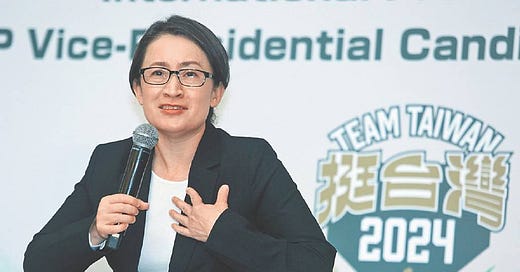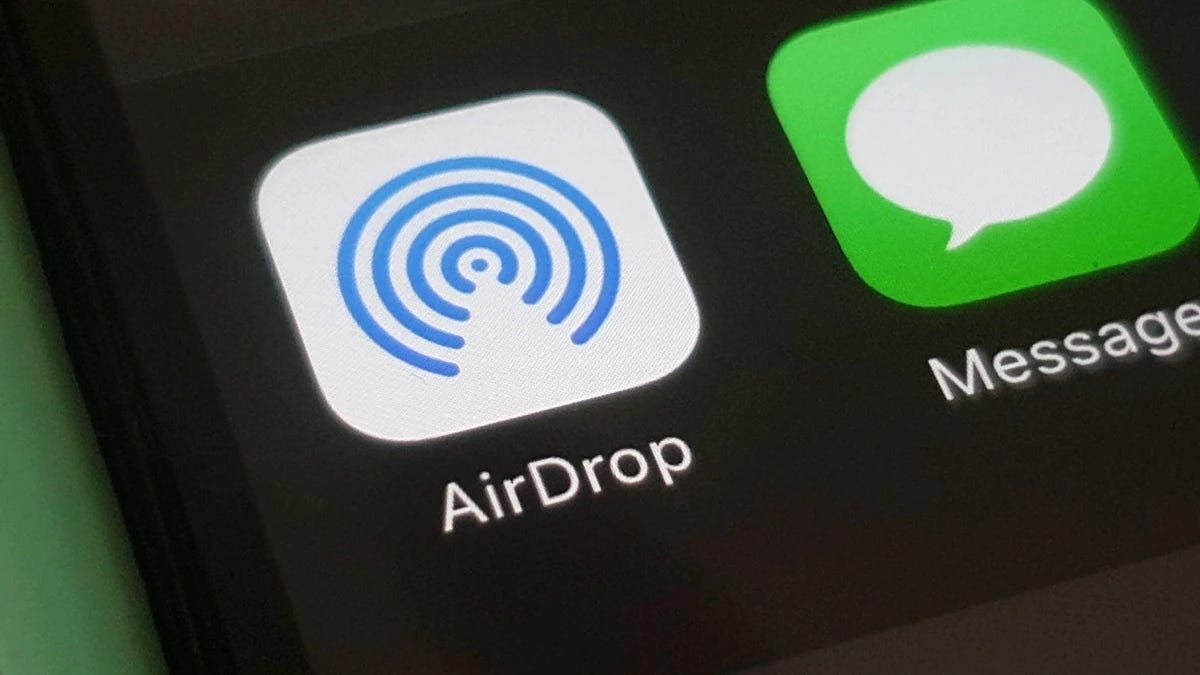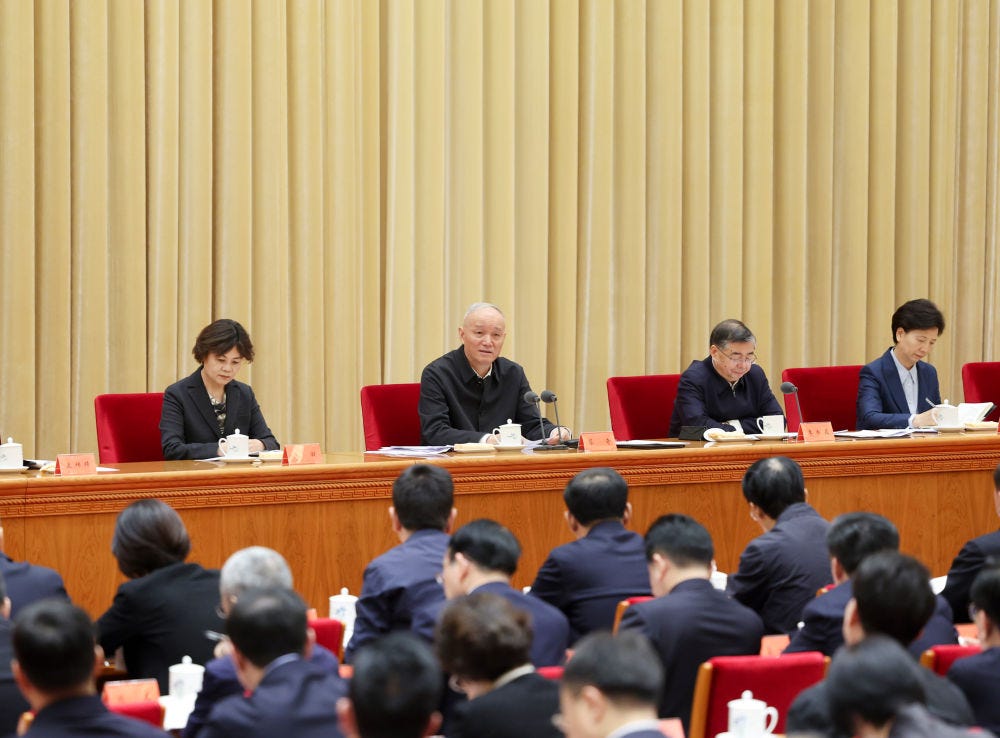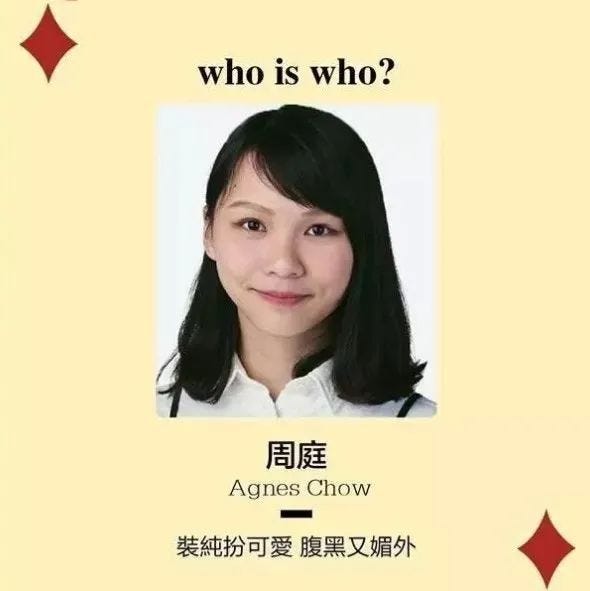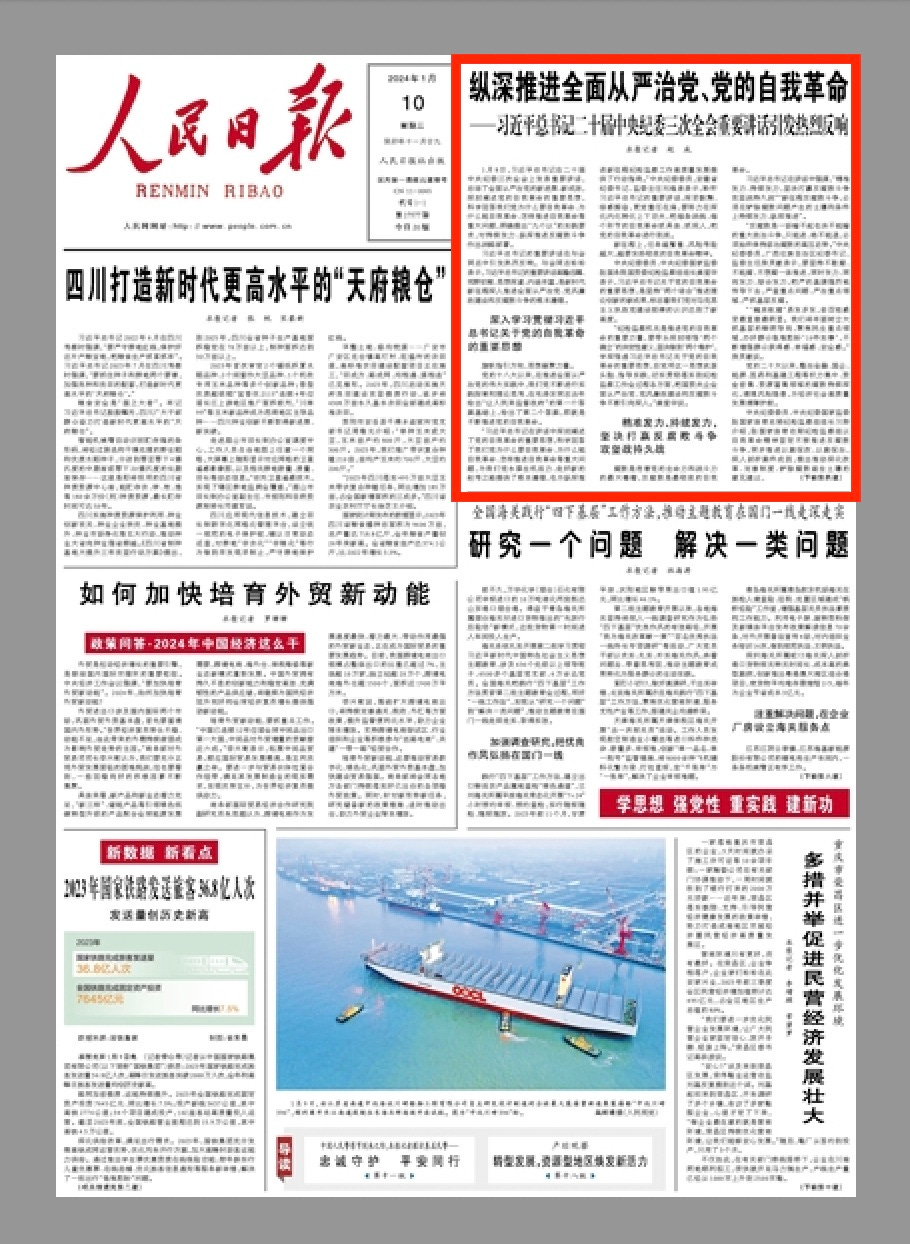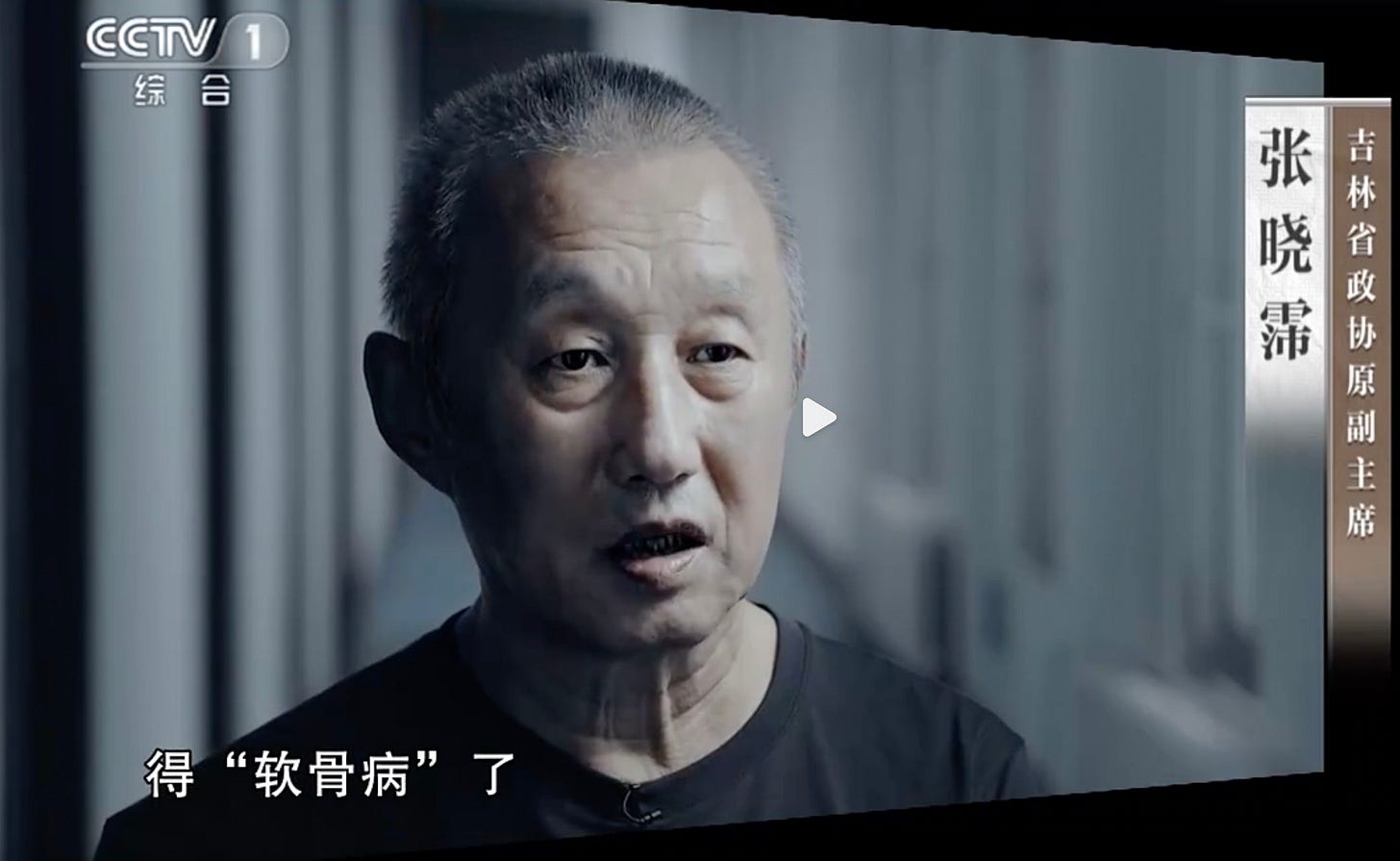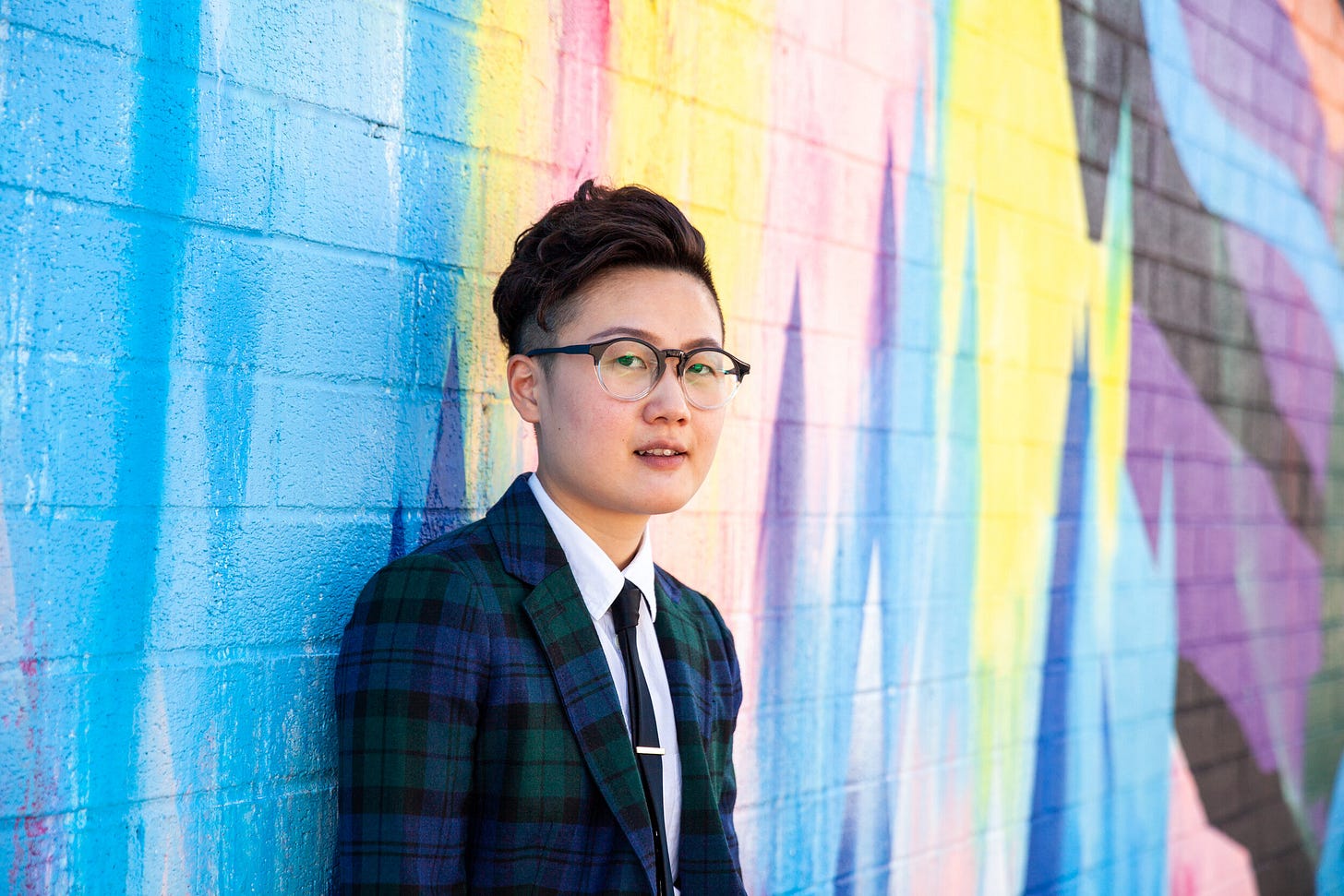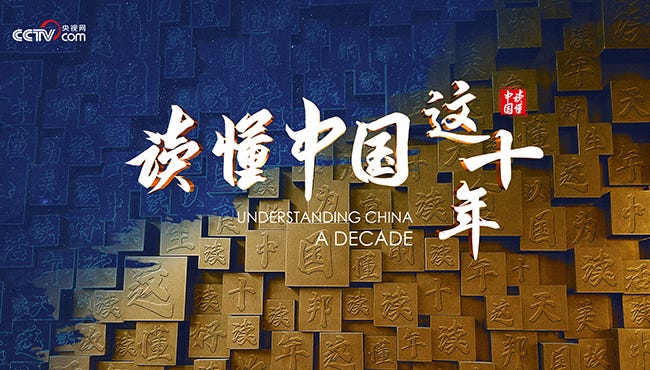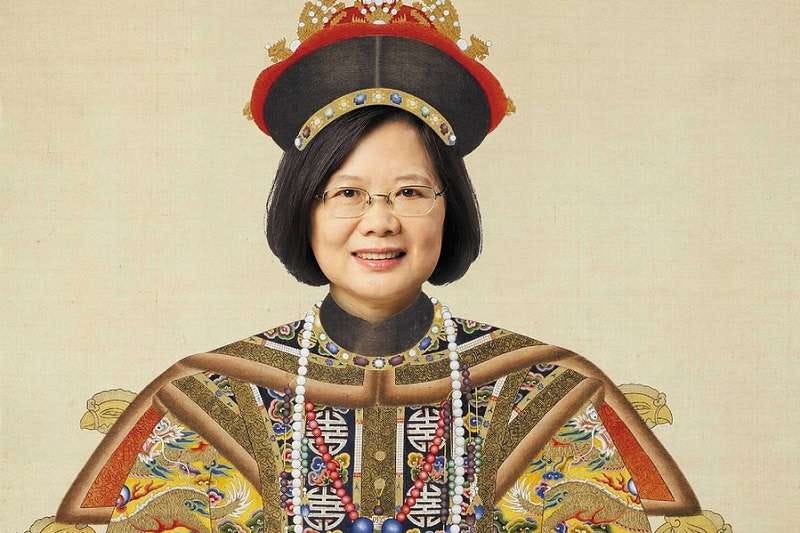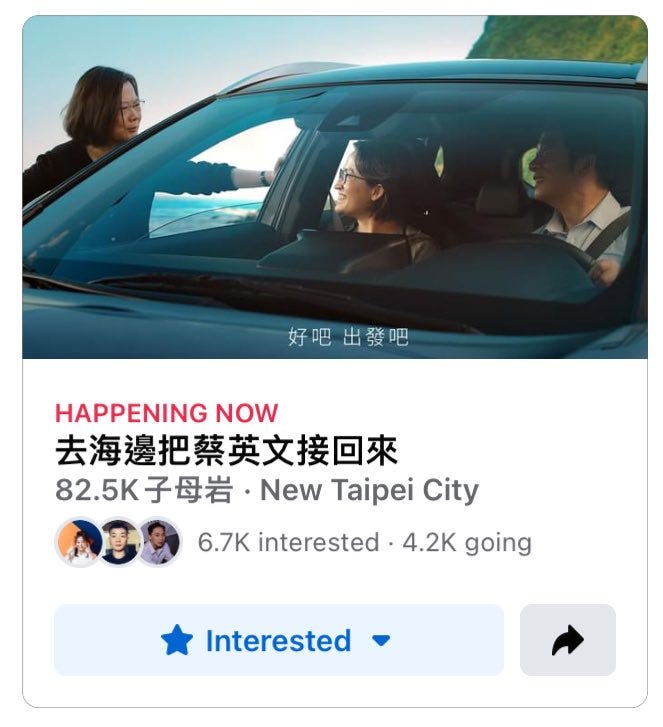Lingua Sinica Newsletter, 11 Jan
News, analysis, and commentary on Chinese-language media from the PRC and beyond.
Welcome back to Lingua Sinica:
We’re coming back to you after a brief Christmas hiatus, just in time for a deservedly Taiwan-heavy edition of the newsletter ahead of the country’s national elections on Saturday, January 13.
Taiwan’s elections are always a riveting time for participants and observers alike, but this time around there are added layers of weight: after “improvements” to Hong Kong’s elections that barred opposition candidates and decimated the numbers of directly returned representatives, Taiwan’s are the only truly competitive and meaningful polls left in the Chinese-speaking world. As Beijing has grown increasingly bellicose on cross-Strait issues, the stakes also feel greater than ever before, and a third consecutive victory for the ruling Democratic Progressive Party would be a historic first since the country’s democratization.
It’s easy to see why the world’s eyes are focused here this week, and why journalists and researchers from around the world are parachuting down in droves for the first round in what’s been billed as “the biggest election year in history.” As half the world’s population — spread across 60 countries — readies to go to the polls, we’ll be looking to how Chinese-language media around the world cover the events.
While Taiwan may be the only Chinese-speaking nation to choose its government, it’s worth remembering that Chinese-speaking communities around the world will still be casting their ballots and discussing pivotal issues in their native tongues — and these are discussions Beijing and others will be keen to influence.
Ryan Ho Kilpatrick
CMP Managing Editor
IN THE NEWS
Fighting Fake News in Taiwan
It is a widely known and widely documented fact that China employs a range of covert tactics in Taiwan to influence public opinion and manipulate people's voting choices. From sponsored trips for local Taiwan politicians across the strait to economic coercion, the list of ways Beijing has sought to indirectly exert its influence during the election cycle is extensive. In response to this threat, Taiwan has grown a strong local ecosystem of groups dedicated to related research.
The latest report by AI Labs Taiwan highlights a spike in online disinformation in the months leading up to Taiwan’s January 13 presidential poll, targeting the sitting president as well as all of the different parties vying for power. AI Labs analyzed some of Taiwan's most popular social media sites: Facebook, YouTube, TikTok, and PTT.
It comes as no surprise that the ruling DPP (民進黨) is the most highly targeted of the parties. Several “troll groups” have been conducting operations (especially on President Tsai Ing-wen’s Facebook page) aimed at undermining her party and their candidates. After news broke of the fatal stabbing of a 9th grader in New Taipei, for example, these groups flooded Tsai’s page with negative comments about her stance on the death penalty.
To counter these information warfare campaigns, several fact-checking organizations have also sprouted up in Taiwan. Taiwan FactCheck Center (台灣事實查核中心), MyGoPen, and Cofacts are three prominent examples. Some social media platforms like TikTok have also teamed up with fact-checking groups or organizations to counter misinformation.
TRACKING CONTROL
Dropping the Bomb on AirDrop
On Monday this week, a report posted to the website of Beijing's Municipal Bureau of Justice caused a stir of international coverage. It revealed that a "Chinese state-backed institution" had managed to crack the encrypted device log of Apple's popular iPhone to identify information about users of AirDrop (隔空投送), a service that enables the wireless transfer at close range of files between supported Apple computers and iOS devices. In just a hint of the disturbing application of what it deemed “a forensic breakthrough,” the article revealed that the use of the new method had allowed police to nab a suspect who had shared a “video with inappropriate comments” on the Beijing subway.
Why is this significant?
For several years, AirDrop has bedeviled authorities in China with its ability to elude the country’s elaborate system of internet surveillance. The service, which cloaks the identity of users, was used to effect by Chinese citizens in October 2022, as they shared images of a banner hung across Beijing’s Sitong Bridge by protester Peng Lifa (彭立发), which read partly: “We don't want [dictatorial] leaders, we want elections; We don't want to be slaves, we want to be citizens.”
Use of the filesharing feature was partly restricted on Chinese iPhones shortly after, on November 9, 2022, just weeks before protesters took to the streets in Shanghai in what became known as the “White Paper Movement.” At that time, a 10-minute time limit was imposed by Apple in China on file transfers to non-contacts — a change making it far more difficult for users to receive digital leaflets or other unsolicited material. Nevertheless, as Initium Media reported, an unknown user on the scene of the Shanghai protests AirDropped a photo from their mobile phone with the words: “Do not be silent, do not forget."
AirDrop was also used actively during the 2019 pro-democracy protests in Hong Kong.
This latest news from Beijing suggests that the hammer may have come down as police, with the help of private enterprises, have found the means to break Apple’s encryption and ferret out sharers of unwanted files.
Who was behind this?
The “breakthrough” was reportedly made by the Wangshengdongjian Forensic Institute (网神洞鉴司法鉴定所), a center operated in close cooperation with police by Beijing Wangshendongjian Technology (北京网神洞鉴科技有限公司), a subsidiary of Qi An Xin Technology Group, or “QAX,” a publicly-listed cybersecurity firm that provides network security technology for China's government and military.
Enforcing the CCP's Media Leadership
Last week, the Chinese Communist Party held its National Propaganda Ministers Work Conference (全国宣传部长会议), an annual gathering of top media control officials that lays out key priorities and sets the agenda for the coming year.
This year, as last year, the main address to the conference was delivered by Cai Qi (蔡奇), the fifth-ranked member of the CCP’s Politburo Standing Committee. As is typical practice, the official Xinhua News Agency issued a read-out of the conference that also appeared the next day on the front page of the_ People’s Daily_ newspaper. The read-out was not forthcoming about the concrete details of the work plan for propaganda officials, reportedly conveyed at the meeting by propaganda chief Li Shulei (李书磊). Instead, it dwelled on general objectives such as “raising the [Party’s] capacity for public opinion leadership” (提高舆论引导能力).
Given the limited release of information about the National Propaganda Ministers Work Conference, it is difficult to know the specifics of plans and discussions at the event — though further details could emerge in the official media in the coming weeks, as implementation is ongoing. However, several changes between the 2023 and 2024 read-outs of the conference are worth noting, including the new prominence of the buzzphrase “Xi Jinping Thought on Culture,” introduced back in October.
For more insight into the National Propaganda Ministers Work Conference, read our breakdown.
SPOTLIGHT
Gods of Democracy
On the campaign trail in Taiwan, politics and religion converge. Temples are pivotal stops for anyone seeking office — be they dedicated to local folk gods, Daoist deities, Buddhist divinities, or an amalgamation thereof. But it’s about a lot more than just appearing devout: temples are linchpins in many communities, particularly in rural areas. They’re so enmeshed in local power networks, in fact, that many are concerned about their ties to criminal gangs and even the Chinese Communist Party.
This distinctly Taiwanese spin on the democratic process is the focus of an engagingly written and brilliantly visualized feature from CommonWealth Magazine (天下雜誌), which has been likened to Taiwan’s homegrown version of The Economist. The story found that, contrary to what some may assume about the march of modernity and receding traditions, temple visits by the presidential candidates are actually up 30 percent this year, comprising half of all campaign spots.
This is likely a result of a more competitive, three-way election, and the lack of any clear political star among them. The DPP’s Lai Ching-te has visited temples the most, with the KMT’s Hou Yu-ih in second and TPP candidate Ko Wen-je trailing third. The CommonWealth piece suggests this is because, as a new party, the TPP lacks grassroots connections. On the other hand, the DPP has long leaned on their temple connections since professional organizations were often in the pocket of the KMT. Temples decicated to Mazu (媽祖), the goddess of the sea, are both the most popular among political hopefuls and the most contested. The highly localized nature of the guardian deity of seafarers means some temples are firmly pro-green while others are pro-blue.
Check out the full article for more fascinating insights.
REDLINES
A Poisoned Pen Expose
In this hit piece by Global People (環球人物), a magazine under CCP mouthpiece People’s Daily (人民日報), Hong Kong pro-democracy activist Agnes Chow is accused of “pretending to be cute and innocent” (装纯卖萌扮可爱) while she is in fact “violent and brainless [and] panders to foreigners” (暴力无脑又媚外).
Chow, one of the most famous of Hong Kong’s young protest leaders, reappeared in the headlines last month after she announced that she is now in self-imposed exile in Canada. She described how, after serving 10 months in prison for her role in a 2019 protest, she was kept under close watch by authorities and even forced to participate in a “patriotic” tour to mainland China. She was eventually allowed to leave the city to pursue a degree abroad, and several months later announced she would not return to Hong Kong.
Since that bombshell, Beijing and Hong Kong have been busy trying to discredit and threaten Chow. As ever, PRC state media seem fixated on Chow’s appearance — a pattern since the then 16-year-old first became involved in activism during the 2012 Moral and National Education controversy. Chow “used so-called cuteness to package herself and incite others to destabilize Hong Kong,” Global People writes, labeling the accomplished activist a “vase” (花瓶) — a misogynistic Chinese insult for women who get by on their looks and are empty inside.
Perhaps even more bizarrely, this poison-pen “expose” is also deeply concerned with Chow’s childhood, recounting how she was a “mischievous and rebellious” student who didn’t listen to teachers and napped during class. The patronizing tone will be familiar to long-suffering observers of PRC discourse on Hong Kong, which is often likened for its democratic aspirations to an “ungrateful child” that “bites the hand that feeds it (反骨忘恩).
Media Reports for Party Discipline
A top candidate for the buzzword of the week in the CCP’s official People’s Daily might be “comprehensive strict governance of the Party” (全面从严治党) after Xi Jinping made a much-touted speech on Monday to a major meeting of the Party’s Central Commission for Discipline Inspection (CCDI), the body responsible for keeping officials upright and clean.
Xi reportedly delivered a “major speech” — HINT: there is no such thing as a minor speech when a CCP leader speaks — that was “far-sighted, broad in vision, profound in thought, and rich in connotations.” Xi called the battle against official corruption “a major political struggle” (重大政治斗争). Read-outs and related commentaries were short on details and long on official jargon and bombast.
Billboards and Warning Signs
But the message to Party officials and the public was given greater specificity as China Central Television (CCTV), the state broadcaster, unveiled a multi-part series that praised the actions of Xi Jinping and the top leadership while offering cautionary tales and mea culpa confessionals from a gaggle of minor officials. They included Zhang Xiaopei (张晓霈), a former vice-chair of the local political consultative conference (CPPCC) in Jilin province, who is alleged along with his son to have pocketed funds from the sale of billboard advertisements.
The series, called "Sustained Efforts and Deepening Advancement” (持续发力纵深推进), is a genre of official CCP media output called the “special feature,” or zhuantipian (专题片), which generally refers to concentrated or in-depth reports on issues of concern that generally dovetail with propaganda objectives. This labor-intensive production would have been planned over many months, with close cooperation between CCTV and the CCDI. Another issue of concern to note is how corruption suspects have been paraded on television, making in some cases what appear to be forced confessions. Is this justice or politics?
QUOTE/UNQUOTE
How Media Hurt Female Politicians
Taiwan’s outgoing two-term president Tsai Ing-wen made history as the nation’s first female head of state. Her time in office also saw the proportion of female legislators reach an all-time high of 42.5 percent, ahead of any other Asian country. In this month’s leadership race, two of the three parties vying for the presidency have put forward female vice-presidential candidates.
All of this is a measure of Taiwan’s progress and a testament to its reputation as a regional leader in gender equality. But when it comes to how women in politics are treated in press coverage, there are still clear discrepancies. We spoke with Wen Liu, Assistant Research Professor at Academia Sinica’s Institute of Ethnology, to find out more.
Lingua Sinica: How are the current female Vice-Presidential candidates portrayed by mainstream Taiwanese media?
Wen Liu: Hsiao Bi-khim has an extensive career as Taiwan's ambassador in the US and a long and respected career as a legislator in Taiwan. Her international experience and attention to gender and sexual equality rights are seen as a massive plus for the DPP's [presidential candidate] Lai Ching-te. On the contrary, Cynthia Wu, who is often referred to as the "princess" of the Shin Kong Group, is viewed quite negatively by the Taiwanese media due to her lack of political experience, her super-privileged background, and her lack of a solid political platform.
LS: How do Taiwanese media generally perceive women in politics?
WL: Female politicians are often judged by their appearances and marital status rather than their career achievements or politics. That kind of misogynistic attitude still exists in today's campaign. For instance, at a KMT campaign rally former health minister Yaung Chih-liang (楊志良) said DPP legislative candidate Wu Su-yao (吳思瑤) "is useless because she's over the age of 50, and will not be able to carry any children." Tsai's singlehood has been attacked many times as well but with the emergence and popularity of Hsiao, who is also a single woman, in this campaign, this kind of old-school misogynistic tactic tends to narrowly appeal to conservative voters who are already mostly pan-Blue, rather than attract new voters.
LS: Has the recent #MeToo resurgence in Taiwan influenced media treatment of women in positions of power?
WL: Unfortunately, I don't think the #MeToo movement has had too much political impact in this campaign, or we haven't seen its effects yet. But some DPP legislative candidates have promised to improve the workplace gender equality bill if they are elected.
GOING GLOBAL
What Does It Mean to Understand China?
As the “Understanding China” conference celebrated its 10th anniversary last month in Guangzhou, the event, once dubbed a “shadow G20,” was a shadow of its former self. No longer was it a gathering of political luminaries interested in seriously discussing China’s global role and implications. Rather, it was a stage on which the leadership could play out its grandiose vision of itself.
Far from promoting dialogue and understanding, as originally envisioned, “Understanding China” is today a reminder of how closed and impenetrable China has become. For the leaders of the Chinese Communist Party (CCP), “Understanding China” means accepting China on the Party’s terms. It is the antithesis of openness and meaningful discussion.
Read our full exploration of how the notion of dialogue has been twisted in Xi’s China, and how cities and provinces are being roped into the business of external propaganda.
STORYTELLERS
No Sissies, Please
“Boys' love” (BL) or danmei (眈美) stories, which feature beautiful, soft-featured male protagonists falling in love with each other, have for years been a popular trend among Chinese-language audiences.
In China, the genre has fallen victim to an ongoing crackdown against so-called “sissies” or niangpao (娘炮) and the enforcement of strict, normative gender roles — something that’s been seen as a reaction against the country’s falling birth rate and a means to promote aggressive, muscular nationalism under Xi Jinping. This began as early as 2015 but crystalized in 2021, when the Central Propaganda Department and the National Radio and Television Administration banned the distribution of BL content.
Hate Speech in Hong Kong
In tandem with the mainland crackdown, an opinion piece published in October 2021 the Hong Kong Economic Times (香港經濟日報), a local newspaper whose owners have extensive business interests in the PRC, echoed Beijing’s concerns, warning that content which “promotes homosexuality” could cause a “national crisis” by exacerbating the falling birthrate. (In stark contrast to this reductive and prejudicial reading, young Hongkongers have pointed to the prohibitive cost of housing and education as the main reasons they are reluctant to start a family.) This language was soon adopted by one of Hong Kong’s most virulently pro-Beijing politicians, Junius Ho, who argued that same-sex marriage poses a “national security” risk, and demanded that the newly-established national security police shut down the 2023 Gay Games sporting event.
The 2021 hate storm never materialized into action in Hong Kong. But there are now signs that is changing. At the end of last month, the prospect of a localized BL crackdown in Hong Kong became real as the Ming Pao (明報) newspaper reported that two of the city’s comic book stores had removed BL volumes from their shelves after police turned up and demanded they stop selling the books
As the lights dim for the boys' love genre in China and Hong Kong, the situation in Taiwan only glows brighter. Many of the genre’s most popular titles already hail from its shores, and some local creators are finding success abroad. When Taiwanese BL mangaka Daily Greens (每日青菜) recently toured Australia, Taiwan’s Central News Agency said it was proof that “Taiwan’s soft power is not to be underestimated.” Or, as one commenter reacting to the Hong Kong crackdown put it on Taiwan’s popular PTT platform, “Taiwan truly is the holy land of boys' love.”
NEWSPEAK
Dictators in Denial
When US President Joe Biden said publicly in November 2023 that he had not changed his view that his Chinese counterpart, Xi Jinping, is effectively a dictator, this remark threatened to upturn the gains from the leaders’ long-anticipated summit just days earlier. The remark sparked an immediate backlash from Beijing, with a spokesperson for China’s Ministry of Foreign Affairs calling it “extremely incorrect and irresponsible political manipulation, which China resolutely opposes.”
When the continued concentration of power is the clear trajectory of politics under Xi Jinping, why does this label spark such a furious reaction from China?
As we explore in our latest entry to the CMP Dictionary, “Dictator” is a deadly-serious accusation to levy against any leader in the PRC, where the ruling Chinese Communist Party insists that its power, however concentrated, is wielded for the good of the people. Conversely, the CCP and state media are quick to use the label against those opposed to its interests, including elected foreign leaders and even imprisoned pro-democracy activists. Within the official discourse of the CCP, being a “dictator” is not really about how much power one wields but rather about whether power is wielded in ways the CCP approves.
Learn more in the CMP Dictionary.
ON A LIGHTER NOTE
Drivers for Tsai
Last week, when Taiwanese Facebook users were invited to “Go to the beach to pick up Tsai Ing-wen” (去海邊把蔡英文接回來), more than 82 thousand volunteered to give the outgoing president a lift back to the capital.
The buzz around this “event,” which underscored the importance of Facebook as a political communication platform in Taiwan, started after the last campaign video from the ruling Democratic Progressive Party (DPP) dropped on YouTube. In it, Tsai drives her rival-turned-deputy Lai Ching-te, the DPP’s new presidential candidate in the upcoming January 13 election, along scenic coastal roads as the two banter and reminisce about their political careers.
As the cinematic shots of serene, traffic-free roads (a rare delight in these parts) draw to a close, Tsai steps out of the car and lets Lai take the wheel, his own vice-presidential candidate Hsiao Bi-khim materializing — mysteriously — in the passenger seat beside him.
The symbolism is clear, but some couldn’t help but wonder about the literal ramifications as the duo drive off and leave Tsai seemingly on her own on an isolated seaside highway. Others, impressed with her performance behind the wheel (or perhaps at the helm of state) suggested giving Tsai a five-star review as an Uber driver.


